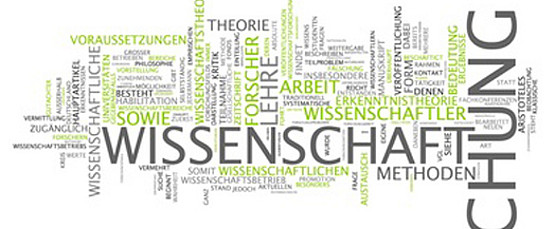Researching
Linked Knowledge on the History of Philology and Linguistics
| Project management: | Prof. Dr. Ursula Bähler (Universität Zürich) O. Univ. Prof. Dr. Berhard Hurch (Universität Graz) |
| Financing: | FWF & SNF |
| Duration: | 2021-2023 |
| Content: | Philingk is a two-year lead agency project (2021-2023) carried out by the Institute of Romance Studies at the University of Zurich (Prof. Dr. Ursula Bähler) and the Institute of Linguistics at the University of Graz (Prof. Dr. Bernhard Hurch) and is funded by the SNF and FWF. The project is located at the interface between the traditional history of philological andlinguistic science and the new possibilities of digital humanities. The focus of the project is on the digital edition of the extensive and previously unpublished correspondence between Gaston Paris (1839-1903) and Hugo Schuchardt (1842-1927) as well as its linking with existing databases (HSA, CorrespSearch). Novel methods of data modeling and research questions aim at representing and bringing to life the polyphonic discourse space which has decisively influenced the formation of knowledge. Thereby, new insights into processes of scientific discussion and differentiation will be made possible. A print edition will be created in addition to the digital edition. |
| Homepage: | https://gams.uni-graz.at/context:hsa |
The Language of the Arab Minority in Southern Iran. Language documentation and investigation of linguistic patterns
| Project management: | Assoz. Prof. Mag. Dr. Dina El Zarka |
| Financing: | FWF |
| Duration: | 2020-2024 |
| Content: | The Arabic dialects that are spoken in scattered areas along the eastern shore of the Persian Gulf have not been linguistically described yet. Due to their Sunnite denomination, the Arab communities living in Southern Iran may be considered a religious minority. Linguistically speaking, they are mostly bilingual speakers of Arabic and Farsi, albeit to different degrees. The project mainly focuses on the documentation and various linguistic aspects of the local dialects. Based on a large digital corpus of authentic texts in transcription and English translation the project will address an array of research questions, among them: How can these dialects be classified from an areal-linguistic perspective within the continuum of the Arabic dialects spoken along the Gulf from Khuzestan in the north to Oman in the south? Do they possess phonological, morphological, syntactic, and lexical features, which particularly connect them with any single dialect spoken in the region? To what extent do these dialects show contact phenomena with the majority language Persian that go beyond lexical borrowing, for instance in the realm of prosody and information structure. Hitherto, the description and analysis of prosody and information structure has been largely neglected in Arabic studies and thus constitutes one of the most innovative aspects of the project. Another new aspect is the documentation of cultural practices of a completely under-researched minority group by combining linguistic and ethnographic aspects. The linguistic data will be gathered during long field campaigns that are carried out with the help of local researchers and speakers. This will guarantee the collection of authentic data and the creation of a corpus which consists of life stories, traditional narratives and songs, procedural texts and spontaneous conversation. For the analysis of certain linguistic features, questionnaires and staged communicative events will supply additional data. The project has been designed as an attempt to combine the approaches of general linguistics with the methodologies of Arabic dialectology. The use of up-to-date text technological methodologies to build a digital corpus also sets new standards in Arabic dialectology. The project is conducted in the spirit of open source and open access. Therefore, the linguistic corpus will be professionally archived and made available to the scientific community through a publicly accessible web interface, which will enable other scholars to do further analyses and to add their own material. |
| Homepage: | https://south-iranian-arabic.uni-graz.at/
|
"Cross-layer" language models for conversational speech
| Project management: | Mag. Dr. Barbara Schuppler (SPSC, TU Graz) |
| National partner: | Associate Professor Mag. Dr. Dina El Zarka |
| Financing: | FWF |
| Duration: | 2019-2023 |
| Content: | Under the overall direction of Barbara Schuppler (SPSC, TU Graz), this project aims to improve the automatic recognition of conversational speech, to expand our knowledge of conversational speech production and perception, to contribute to the study of spoken Austrian German and to make resources available for the study of Austrian German. As part of the overall project, the doctoral project of Anneliese Kelterer under the direction of Dina El Zarka (national partner) at the Institute of Linguistics deals with prosodic features and phonetic reduction phenomena in Austrian German conversational speech and their significance for the linguistic realisation of communicative functions. The acoustic analysis of conversational speech data is complemented by perception experiments that test the relevance of acoustic parameters for human perception. At the same time, the project should provide further insights into the prosodic realisation of interactional phenomena and discursive structures (turn-taking, thematic organisation etc.) as well as other semantic-pragmatic functions (speech acts, foregrounding, backgrounding etc.) in spontaneous conversations. |
Hugo Schuchardt Archive
| FWFProject management: | O. Univ.-Prof. Dr. Bernhard Hurch |
| Financing: | Malwinenstiftung Foundation, FWF |
| Duration: | 2003 - ongoing |
| Content: | The Hugo Schuchardt Archive is dedicated to processing the complete works and the estate of Hugo Schuchardt. The free-to-use web publication of Schuchardt's writings has been completed along with the construction of a secondary literature bibliography. The project needs to finish processing parts of the estate and the correspondence as well as provide a network publication of secondary literature. From 2012-2016, the FWF funded a project on the framework topic 'Network of Knowledge'. It was requested to empirically process the material requirements for the professionalisation of linguistic subjects in the 19th century based on Hugo Schuchardt’s estate. |
| Homepage: | |
| E-Mail: |
Contact
Office
Mon - Fri: 9 a.m. - 12 noon
Changes see 'News'!


